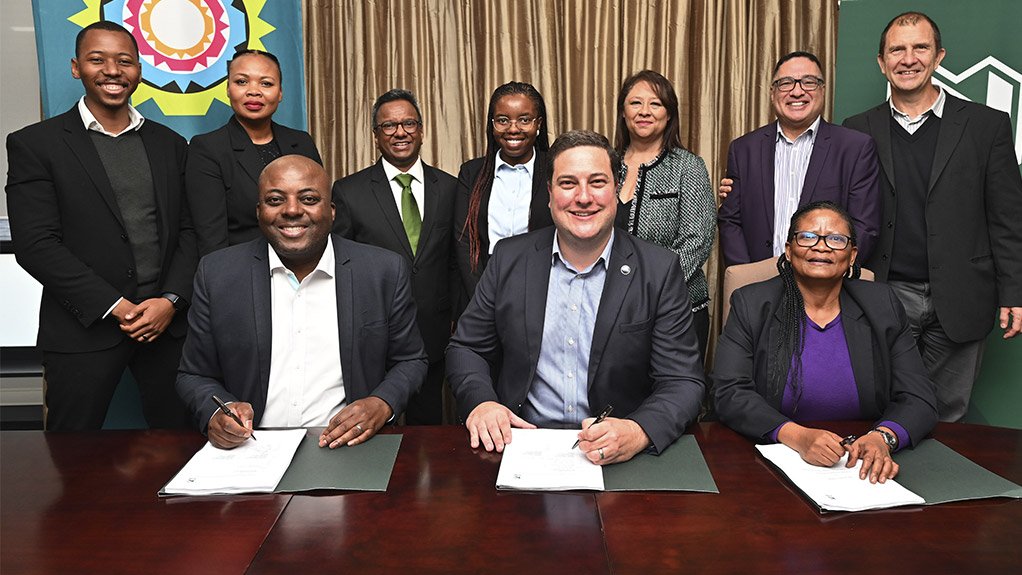The City of Cape Town has secured a further R3.5-billion in financing towards its plans to spend a record amount on infrastructure investment over the three years to 2027.
Mayor Geordin Hill-Lewis conducted the signing ceremony with Nedbank on June 24, after the council greenlighted the financing on June 12.
The city plans to spend R39.5-billion on infrastructure from July 2024 to June 2027, which has been approved in its ‘Building For Jobs’ budget. This is South Africa’s largest ever three-year infrastructure investment by a metropolitan municipality.
Cape Town accounted for 60% of the R100-billion in overall government infrastructure projects announced nationally in 2023, according to financial institution Nedbank's updated Capital Expenditure Project Listing for 2023, published in February.
“We are pleased to secure further finance towards our ambitious infrastructure investment agenda, which we estimate will create 130 000 construction-related jobs alone over three years.
Lower-income households will also directly benefit from 75%, or R9-billion, of Cape Town’s R12-billion infrastructure spend in 2024/25.
“This pro-poor infrastructure spend in 2024/25 is bigger than the entire infrastructure budget of any other metro. Cape Town will soon be South Africa’s most populous city, and we are preparing for this by targeting our fastest-growing, and poorest areas, with infrastructure projects that will, over time, unstitch the unjust legacy of our country’s past,” Hill-Lewis said on June 25.
Cape Town’s ten-year pipeline is valued at an estimated R120-billion. The majority of the projects are classified as economic, social and governance (ESG) investments and linked to the city’s overall climate change strategy.
In October last year, Cape Town published a request for proposals (RFP) for funding for the 2023/24 and 2024/25 financial years, which was followed by extensive engagements with local and international lenders.
Alongside the Nedbank finance approval in June, the city council further approved $150-million in finance from the International Finance Corporation (IFC), and in April last year, greenlit €100-million developmental financing from the Agence Francaise de Developpement.
Cape Town is following a blended finance model, which includes funding from its own healthy balance sheet, as well as finance from the local and international markets.
Further financing agreements are set to serve before council during the 2024/25 financial year regarding the balance of the funding requirements for the city’s infrastructure plans.
Edited by: Chanel de Bruyn
Creamer Media Senior Deputy Editor Online
EMAIL THIS ARTICLE SAVE THIS ARTICLE
ARTICLE ENQUIRY
To subscribe email subscriptions@creamermedia.co.za or click here
To advertise email advertising@creamermedia.co.za or click here













